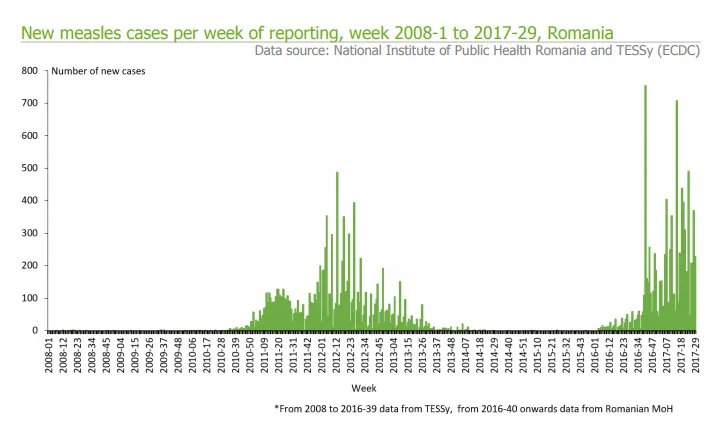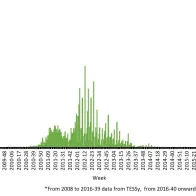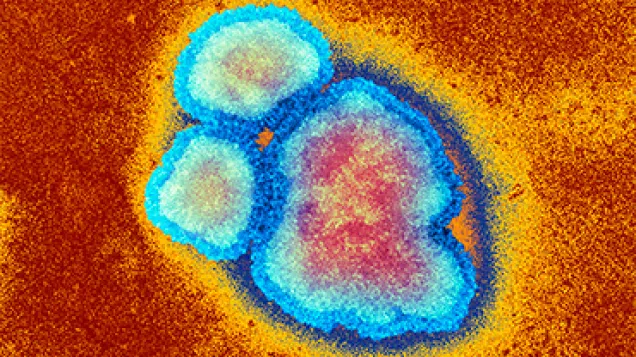Epidemiological update: Measles - monitoring European outbreaks, 28 July 2017
January 2016 and 21 July 2017, Romania reported 8 246 measles cases, including 32 deaths. In 2016, several other EU/EEA countries reported measles outbreaks and an increase in the number of cases continues to be observed in 2017. Some previous and ongoing measles outbreaks in other EU/EEA countries have been epidemiologically linked to the current outbreak in Romania.
Update of the week
In addition to Romania, there is an update from the following EU/EEA countries: Bulgaria, France, Germany, Italy, Spain and the United Kingdom. Several other countries have also reported outbreaks. According to national public health authorities, these have caused 32 deaths in Romania, three deaths in Italy, one death respectively in Germany, Portugal and France.

Epidemiological summary
EU/EEA countries with updates since last week:
Bulgaria: There is an increase by three cases since 21 July 2017. Since the beginning of 2017 and as of 16 July, Bulgaria reported 166 cases. During the same time period in 2016 Bulgaria reported one case.
France: On 27 July 2017 media quoting the French Minister of Health reported the death of a 16-year-old unvaccinated girl. She had fallen sick in Nice and died on 27 June 2017 in Marseille.
Germany: There is an increase by four cases since the last report on 21 July 2017. Since the beginning of 2017 and as of 26 July, Germany reported 801 cases. During the same time period in 2016 Germany reported 187 cases.
Italy: There is an increase by 170 cases since 21 July 2017. Since the beginning of 2017 and as of 25 July, Italy reported 3 842 cases, including three deaths. Among the cases, 271 are healthcare workers. The median age is 27 years, 89% of the cases were not vaccinated and 6% received only one dose of vaccine.
Romania: There is an increase by 229 cases, including one additional death, since 21 July 2017. Since 1 January 2016 and as of 21 July 2017, Romania reported 8 246 cases, including 32 deaths. Cases are either laboratory-confirmed or have an epidemiological link to a laboratory-confirmed case. Infants and young children are the most affected groups. Timis, in the western part of the country closest to the border with Serbia, is the most affected district with 1 215 cases. Vaccination activities are ongoing in order to cover communities with suboptimal vaccination coverage.
Spain: There is an increase by seven cases since 14 July 2017. Since the beginning of 2017 and as of 25 July, Spain reported 145 measles cases.
United Kingdom: Public Health Wales reported two additional cases related to the outbreak in Newport and Torfaen, bringing the total to ten cases related to this outbreak. In England and Wales there is an increase by 76 cases since 21 July 2017. Since the beginning of 2017 and as of 23 July 2017, England and Wales reported 922 cases. In the same time period in 2016, they reported 946 cases.
In addition to the updates listed above ECDC produces a monthly measles and rubella monitoring report with surveillance data provided by the member states through TESSy. The last report was published on 11 July 2017 with data up to 31 May 2017.
ECDC assessment
Measles outbreaks continue to occur in EU/EEA countries. There is a risk of spread and sustained transmission in areas with susceptible populations. The national vaccination coverage remains less than 95% for the second dose of MMR in the majority of EU/EEA countries. The progress towards elimination of measles in the WHO European Region is assessed by the European Regional Verification Commission for Measles and Rubella Elimination (RVC). Member States of the WHO European Region are making steady progress towards the elimination of measles. At the fifth meeting of the RVC for Measles and Rubella in October 2016, of 53 countries in the WHO European Region, 24 (15 of which are in the EU/EEA) were declared to have reached the elimination goal for measles, and 13 countries (nine in the EU/EEA) were deemed to have interrupted endemic transmission for between 12 and 36 months, meaning they are on their way to achieving the elimination goal. However, six EU/EEA countries were judged to still have endemic transmission: Belgium, France, Germany, Italy, Poland and Romania. More information on strain sequences would allow further insight into the epidemiological investigation.
Actions
All EU/EEA countries report measles cases on a monthly basis to ECDC and these data are published every month. Since 10 March 2017, ECDC has been reporting measles outbreaks in Europe on a weekly basis and monitoring worldwide outbreaks on a monthly basis through epidemic intelligence activities. ECDC published a rapid risk assessment on 6 March.
All epidemiological updates
More about surveillance of measles
Share this page




